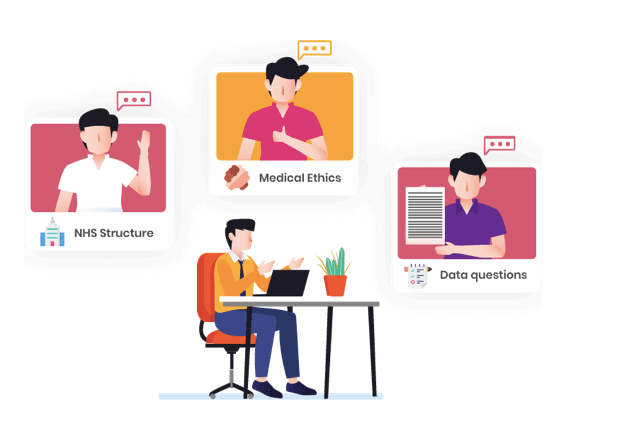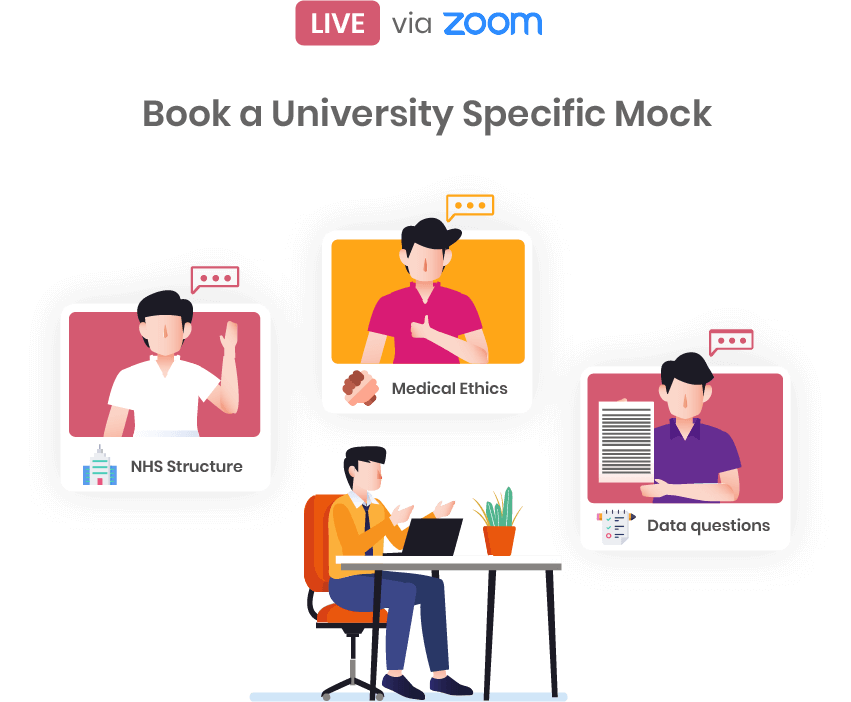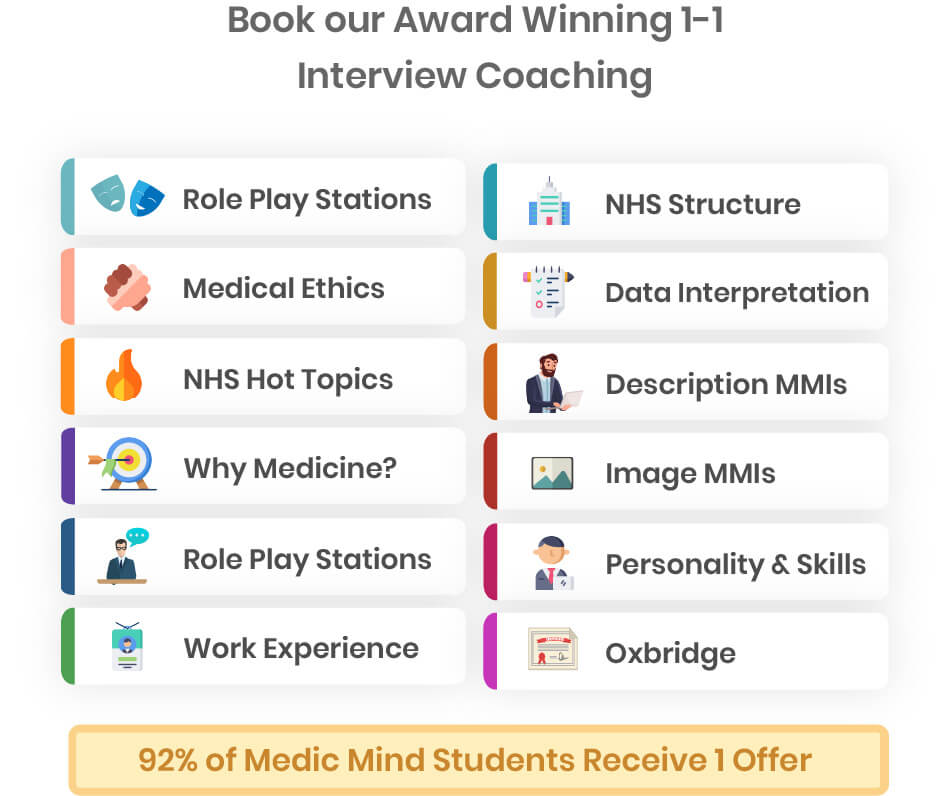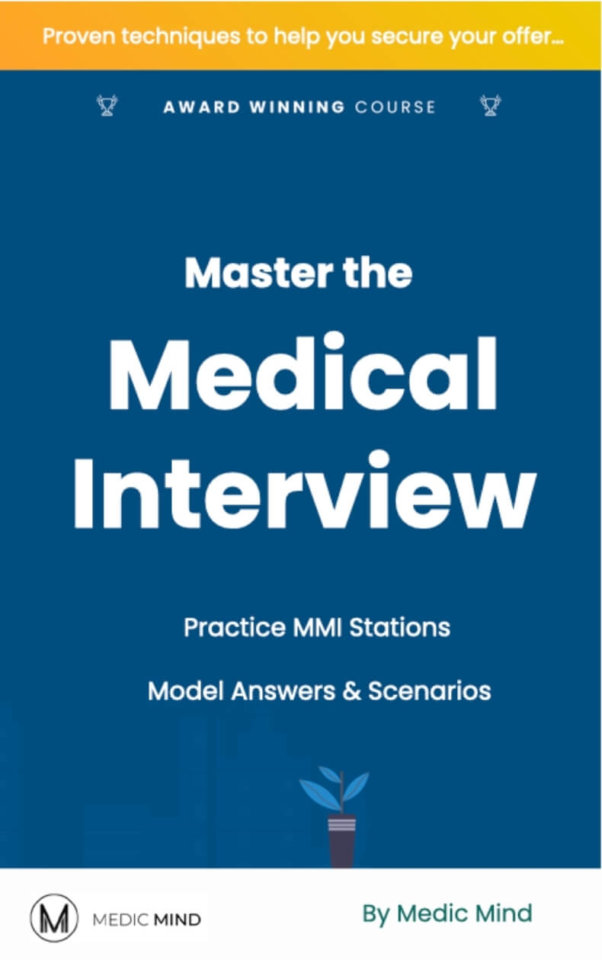Loading...


Oxford Medicine Interview Preparation Questions
This article was updated in December 2023 with the latest information, and we will continue to regularly update it!
In this guide we provide an expert insight into past University of Oxford panel interviews, the University of Oxford Medical School interview day and tips for converting your University of Oxford Medicine interview into an offer!


How Is Oxford Interviewing for 2024 Entry?
What is the Oxford Medical School Interview style?
Most candidates will have at least two panel interviews lasting 20-45 minutes. The format of the interview varies depending on the college applied to but every interview will have at least 2 academics per college as well as one practicing clinician.
Each applicant will be assessed by their college of preference – or if an open application was made, by a randomly allocated one and by another college independent of their application.
What are the Oxford Panel Interview Dates?
Interviews will take place in December and applicants will not be able to choose a preferred timing.
What are the common topics covered at the Oxford Medicine interview?
Oxford recommended reading the Medical Schools Council’s Consensus Statement University offers recommended reading in preparation for the panel interview. This includes the Medical School Council’s Consensus Statement on the roles and remits of a doctor The Consensus Statement , and the Guiding Principles for the Admission of Medical Students Guiding Principles.
Key topics assessed:
- Knowledge of scientific foundations of medicine and recent advancements
- Personal qualities of professional care provision
- Communication skills
- Importance of bio-psycho-social aspects of medicine
- Appreciation of ethical, legal and societal issues in healthcare provision
- Demonstration of teamwork
- Capacity for continued inquiry, education, teaching and lifelong learning
Meet Our Oxford Tutors!
How many people applied to Oxford?
In 2023, Oxford received 1,713 applications, and approximately 27% of applicants were shortlisted.
How many interviewed applicants received an offer from Oxford?
The latest statistics have not yet been released but it is approximately 1 in 3 candidates that receive an offer after interview.
For more information, about the University of Oxford, click here: University of Oxford
At Medic Mind we’ve helped many students secure offers from Oxford and other medical schools. If you’re applying to Oxford, we can do a high quality 1-1 mock with you with an Oxford tutor and realistic panel questions uniquely for Oxford.
Book a University Specific Mock
Meet our Tutors from Oxford

List of Recent Oxford Medicine Interview Topics
| Theme | Oxford Example Questions |
|---|---|
| Motivation for Medicine | Suitability for the course |
| Work Experience | Important qualities required by doctors |
| Communication & Role-Play | Ability to teach an audience using clear language and conceptualisation |
| Personality & Skills | Interpreting data Qualities of a good doctor Resilience Extracurricular Scientific aptitude |
| NHS Hot Topics | Restricted budget and resources Current news |
| Medical Ethics | Discussion of relevant topics, e.g. gene modification, abortion, etc. |
| Personal Statement | Discussion of specifics mentioned in the statement |
| Other | Limitations of the Oxford course Scientific knowledge |
If you wish to practice Oxford panel interview mocks, here are some sample questions:
- Discuss antibiotic resistance and its future implications.
- Describe which anatomical structures are shown in this diagram.
- How would you reassure a patient who is worried about receiving their biopsy results?
- What qualities are needed to be a good doctor?
- Tell me about a recent medical technology advancement which you are interested in.
- How can you calculate the moles of water inside this glass?
- Interpret these graphs showing Type 1 and Type 2 diabetes being treated with insulin.
- Start by telling me which graph represents each type.
- What are the ethical implications of taking steroids for sporting activities?
An Oxford Medical Student’s Perspective
Name 3 Reasons why you picked Oxford
- Pre-clinical / Clinical split – Oxford is one of few remaining medical schools that offers almost no clinical exposure until the later years of your course. This means that you get a decent grounding in medicine before you step foot in a hospital, so that you have a better awareness of what is happening and you can get more out of the placements. The downside is that the number of lectures in first and second year can seem endless, but it is motivating looking back on the content covered each year and realising how much you have learned.
- Collegiate system – Oxford is divided into dozens of colleges, most of which offer medicine as a degree. This collegiate system is something that few other medical schools except Cambridge (ew!) have. The college is like your Harry Potter house: it is where you eat, sleep and socialise. Socially speaking, these colleges are great, especially if you are like me and find the concept of a massive university quite intimidating. This is because colleges are small mixing pots of students of various subjects, so friendships form more easily. You soon grow to love your college and insist that it is the best of all the colleges, which is perhaps best proved by conquering the other colleges at various sporting and non-sporting events (“cuppers”). Being part of a college also means that you essentially have your own ‘team’ of 5 or 6 medics in your year, which is great for support.
- The City – The “city of dreaming spires” really does live up to it’s name, with some pretty stunning buildings around. It’s definitely very cool to step back once in a while and remind yourself of how amazing of a city it is. Personally, I think it’s just busy enough to be interesting and just quiet enough to not be overwhelming. Oxford also has amazing facilities, both academic and non-academic. For fans of rowing (or keen novices, as I was), the river is host to boat races each spring and summer. And best of all, it is a very compact city – almost everything a student could want is within a 20 minute walk of the centre.
What makes Oxford unique to other medical schools?
Oxford is unique in its very particular style of teaching, most notably the tutorial system. Tutorials are small group teaching sessions (usually no more than 2-5 people with a tutor), which are a chance to solidify your understanding of the lectures and also explore beyond them. Tutorials can be incredible because you might even find yourself one on one with a world expert in a topic, and there have been several times where I’ve had my mind blow. But they are also a lot of work, especially when you have a lot of essays set for these tutorials. The essays can form the majority of your weekly workload, so this really is a big difference from other medical schools that only set very occasional essays. While these essays are rarely fun, they do teach you how to search literature, improve your prose, and ultimately they force you to revise content.
Insider Guide: Oxford Medicine Interview Day
How did the University of Oxford Medical School Interview day work?
You will have 2 separate panel interviews held across 4 dates in December. You do not get to choose a preferred timing and will be allocated this. The panels will be held virtually via Microsoft Teams for the 2023-24 cycle.
The interviews will include 2-3 assessors, including one specific to the college and one clinical practitioner, and last under 30 minutes each. Typically there will also be time for logistical and identification checks.
What did you have to bring for the University of Oxford panel Interview?
The dress code is as usual for any interview, even virtual ones- smart clothes. ID is required, but nothing else specifically. If the interview is held virtually, a strong Wi-Fi connection, working camera and microphone and a quiet and bright space is needed.
Does the University of Oxford panel interview require scientific knowledge?
While it is not specifically stated in their admissions policy, Oxford does expect applicants to showcase an “enthusiasm and curiosity” for the sciences. This is often done by questioning your understanding of recent medical advancements or other popular medical concepts in today’s media, such as social determinants of healthcare. A thorough understanding of medical concepts in the media and those surrounding the COVID-19 pandemic should suffice. You should also have a strong grasp of your A-level Biology concepts.
How did you receive information for each University of Oxford Medical School Interview?
Some information about the format and process will be sent via email in the weeks leading up to your interview while the rest is often given verbally during the course of the interviews.
What were the University of Oxford panel interview examiners like?
Oxford panel interviewers are often very friendly with a conversational and forgiving style of questioning. Given the panel structure, there is room for discussion, especially when it comes to your own experiences and personal statement.
Did the University of Oxford Panel interviewers ask a lot of follow up questions?
There is no predetermined list of follow-up questions but rather these are asked based on the answers given to various questions, much like a stereotypical conversation or discussion. Follow-up questions can be a good thing as often it means that something you’ve said has caught the examiner’s eye!
How long is the actual University of Oxford Medicine Interview?
The interviews are 20-45 minutes long. As panel interviews are not as time pressured as multiple mini interviews, you often have time to think prior to answering as well as carry on past a certain limit, if allowed by the examiners.
How long did it take you to hear back after your University of Oxford Medical School interview?
All Oxford interview candidates for all courses are typically made aware of the university’s decisions on the 15th of January. However, delays are to be expected due to the pandemic.

Top Tips for the Oxford Medicine Interview
1. Cover all of the main A-Level Biology content, particularly that of human biology. Reading beyond the syllabus can also be useful, especially in the context of recent medical advancements (for example, mRNA vaccines). There are numerous ways to showcase your knowledge but a good grasp is necessary.
2. Practice doing problem-solving questions based on scientific topics or diagnoses. Scientific knowledge is important, as previously mentioned, but so is a thorough understanding of problem-solving and theoretical application. Avoid regurgitating facts and instead learn to apply these to various issues.
3. Review your personal statement and make sure you know all of the scientific basis of the illnesses/diseases you included in your PS, as you may be questioned on this. Be well aware of how to thoroughly reflect on your experiences, including strengths, weaknesses and future impacts.
4. Read our 10 tips for panel interviews! 10 Tips for Panel Interviews
We also have a very useful video for Oxbridge medicine interviews!
5. Review your work experience notes and make sure you know examples of where key skills were being shown by the doctors during your placements. You need to show the examiners that you have thoroughly reflected on your placement(s) and learned from them.
6. Understand that you will eventually get something wrong – The Oxford interviews tend to be aimed at finding out how you cope with being outside your comfort zone and whether you are able to have a good go at a question that you do not have all the required knowledge for. If the interviewers see that you know something, it is quite likely that they will move on until they find something that is pushing your limits. Try not to stress about this and instead have a go at suggesting some ideas.
7. Think out loud – It’s very clichéd, but this tip really does work. It will help the interviewers see how you are approaching the question and they will be better able to give hints. It helped me to talk to myself in the mirror as I answered hard A Level questions, so that I could practise vocalising my thoughts in the interview.
8. Show your passion – The interviewers are often your potential future tutors so they want to see that you are really engaged with the topics you are discussing. After all, they will be teaching you for several years! It goes a long way to seem genuinely curious in what is being discussed, and it will also help you to stay relaxed if you allow yourself to get engaged in what is really just a formal chat about science.
COVID-19 Changes for the Oxford Medicine Interview
Is the University of Oxford Medical School Interview different this year?
The University of Oxford has stated that they are making plans to interview applicants this year without requiring them to travel to Oxford in December. Interviews will be held virtually, via Microsoft Teams.
For some guidance on taking a Medicine interview online, have a look at this useful document from the Medical Schools Council
The official Oxford Medicine interview page will be updated with more information in due course: Official Oxford Interviews
Book a University Specific Mock
Meet our Tutors from Oxford


Frequently Asked Question
→What is the Oxford Medicine Interview?
The Oxford Medicine Interview is a selection process used by the University of Oxford to assess the suitability of applicants for its medicine programme. The interview is typically conducted by a panel of interviewers and aims to evaluate the applicant’s academic abilities, critical thinking skills, and suitability for the medicine programme.
→What types of questions are asked in the Oxford Medicine Interview?
The Oxford Medicine Interview may include a range of questions related to the applicant’s academic background, interests, and motivations for studying medicine. The interview may also include scenario-based questions that assess the applicant’s problem-solving abilities and critical thinking skills.
→How should I prepare for the Oxford Medicine Interview?
To prepare for the Oxford Medicine Interview, you should research the programme and the university, review your personal statement and application materials, and practice answering common medical interview questions. You may also want to practise your communication and presentation skills and prepare to discuss any relevant experiences or achievements.
→What percentage of Oxford applicants get an interview?
According to the University of Oxford’s admissions statistics, the percentage of applicants who were invited to interview for undergraduate medicine courses in the 2020/21 admissions cycle was approximately 71%. However, it is important to note that the percentage may vary from year to year and across different courses. Additionally, meeting the interview threshold does not guarantee an offer of admission, as the university considers a range of factors in its selection process.
→Are Oxford interviews hard?
The Oxford interviews for medicine can be challenging for some applicants due to the rigorous and competitive nature of the admissions process. The interviews are designed to assess a candidate’s academic abilities, problem-solving skills, and critical thinking skills, and can cover a wide range of topics related to medicine and healthcare. However, it is important to note that the interview process is also an opportunity for candidates to showcase their knowledge, skills, and passion for the field. The university aims to provide a fair and thorough evaluation of each applicant and takes a holistic approach to the selection process. In summary, the Oxford interviews for medicine can be challenging, but with adequate preparation, practise, and confidence, applicants can perform well and demonstrate their potential for success in the programme.
→How soon after the interview will I hear back from Oxford?
The University of Oxford typically provides feedback to applicants within a few weeks after the interview. The feedback may include an offer of admission, a request for additional information, or a rejection.
→Can I appeal the decision after the Oxford Medicine Interview?
If you are not offered a place in the Oxford Medicine Programme after the interview, you may be able to appeal the decision. However, the university’s appeal process may vary, so it is important to check with the admissions office for specific details.
→How important is the Oxford Medicine Interview in the admissions process?
The Oxford Medicine Interview is a crucial part of the admissions process and can play a significant role in the selection of applicants for the medicine programme. The interview provides the university with an opportunity to assess the applicant’s academic abilities, critical thinking skills, and suitability for the programme.





Was this article helpful?
Still got a question? Leave a comment
Leave a comment